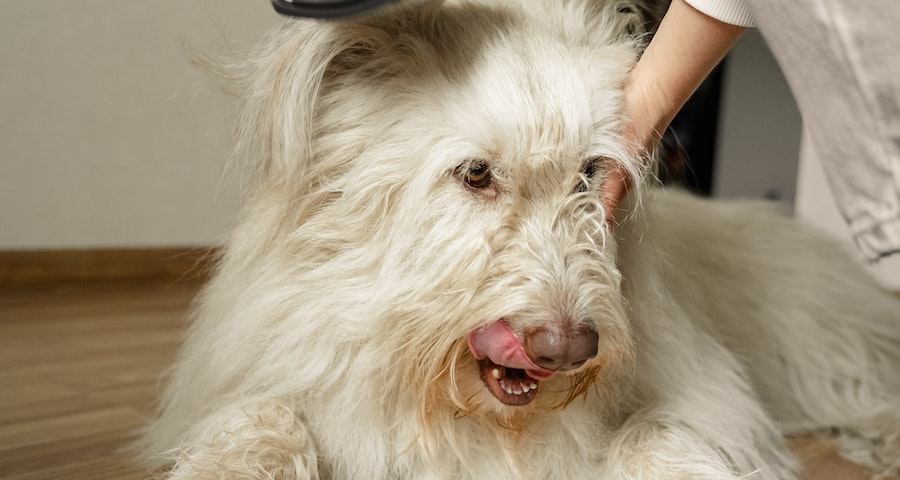
Dogs are known to be people’s best friends, and as such, they need constant attention and care. One of the most important elements of care for any dog is proper grooming, which includes brushing. Brushing ensures that your dog’s coat remains clean, tangle-free, and healthy. Proper brushing in dogs includes understanding their coat type, selecting the right brush, and preparing the dog for brushing. In this blog, we will guide you on how to properly brush your dog.
Contents
Understand Your Dog’s Coat Type
The first step to brushing a dog is to assess its coat type. Dogs come in various coat types such as curly, straight, wiry, silky, long, or short. Understanding your dog’s coat type will enable you to know how often to brush your dog. For dogs with long, silky, or curly coats, brushing should be a more frequent routine. It is also important to note that some breeds such as Golden Retrievers shed regularly, making it essential to brush them to prevent a false spring and summer coat.
Select the Right Brush
The next step is to select the appropriate brush for your dog’s coat type. Numerous brushes exist for different coat types, but there are two commonly used brushes: Slicker brush and Bristle brush. Slicker brushes are best for removing mats and tangles, while bristle brushes are perfect for removing dirt and loose hairs and for distributing natural oils throughout the coat. A strip comb can also come in handy to remove tangles and matted fur gently.
Prepare Your Dog for Brushing
It is important to prepare your dog mentally for brushing as some dogs may not enjoy it. This is essential for good behavior whenever grooming or brushing sessions occur. You can start by speaking to your dog and massaging it, letting it become relaxed. You can also involve rewards like treats after the grooming and brushing sessions. This helps in making the grooming process a positive experience for your dog.
Brush in the Appropriate Direction
Finally, when it comes to brushing, it is important to brush in the appropriate direction. This can prevent your dog from feeling any discomfort and also help in detangling any mats in the fur. When working with knots in your dog’s fur, always be gentle, and refrain from pulling or tugging. It is also important to brush downwards from your dog’s neck gently and work towards its tail. It helps in ensuring a uniform and evenly distributed distribution of natural oils for healthy skin and coat.
Wash the Brush
After brushing your dog, it is pertinent also to wash and keep your brush clean. This can prevent the build-up of dirt and help maintain your dog’s healthy coat. It is best to wash your brush with warm soapy water and make use of a comb to remove any pieces of fur.
Conclusion
Proper grooming is essential to maintain a healthy and happy pet, and brushing is an integral part of this process. Brushing not only keeps your dog’s coat clean and tangle-free but also builds a stronger bond between you and your pet. With the right understanding of your dog’s coat type, selecting the appropriate brush, proper preparation, brushing in the appropriate direction, and cleaning your brush, your dog can have the best grooming experience. Always make sure to brush your dog often to keep it healthy, comfortable, and happy.
